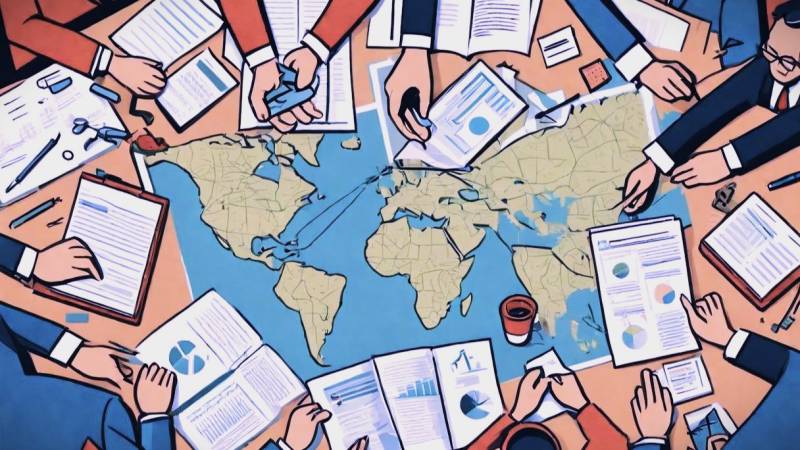
Last December, I attended an European Union (EU)-funded energy event in Ho Chi Minh city (Vietnam) that focused on the market dynamics of liquefied natural gas. The event was spearheaded by an Italian professor with a full-time position at the European University Institute.
Renewable energy and its implications and applications in the different societal sectors form the core area of my interest, and hence, I often find myself travelling to national and international events to remain abreast with the state of affairs in these two particular fields. I am currently in Beijing to gain in-depth knowledge about the electric vehicle industry of China. The EV industry of China, which once challenged the US and European automakers, is now home to giants who have completely dwarfed its Western competitors. The architect of the Chinese e-mobility transition breakthrough is none other than a professor from Tsinghua University.
These are just two examples of the current era which show how universities are the cradle of knowledge, which forms the basis of national policies and effective long-term decisions.
In the same era back home, between December 2023 and May 2024, the Pakistani press carried reports of protesting professors of two categories: one with unpaid salaries and the other who were likely to join the first category, with the impending budgetary axe falling on the usual suspect, the education sector. Simultaneously, a few national energy events were also held during this five-month period that I attended or was obliged to address. Unfortunately, the conduct and content of the national and international events were in stark contrast, similar to the contrast found in the professional environment of the foreign and local professors.
Sadly, even the events covering technical or policy matters are more of an opportunity for creating social media content rather than holding any serious discussions. The outcomes of these meetings are never shared, nor are the participants’ recommendations made public. Panellists get shields and an opportunity to rub shoulders with the high-ups, while participants are happy to have a chance to attend yet another hi-tea. Threatened professors and free lunches are unsustainable in any economy. It is then no wonder that the catering businesses are growing and the worth of a professor is diminishing in our beloved homeland. Even foreign-qualified PhD professors have resorted to taking up odd jobs. This million-dollar question has a very easy answer, if anybody has the time and will to seek a good solution.
In every growing economy, an ecosystem of innovation exists which stems primarily from its universities
There is a general complaint that policies, rules, and regulations are never implemented in Pakistan. Policies are meant to be well-thought-out, researched and even simulated before their launch. It is the task of universities and their professors to roll out such policies; this is a norm all over the world. Professors have the lead role in presenting policy advice, strengthened by the graduate and undergraduate students and further cemented by the years of their research in their particular areas of expertise. An ecosystem of innovation exists in every growing economy, stemming primarily from the universities. Professors were never meant to just calculate their credit hours and then be left at the mercy of recurring grants from the Higher Education Commission or the number of admissions.
Universities all over the world are entrusted by governments to provide policy advice on all state matters, be it the economy, science, politics, or even religion. Just one Google search reveals that all major US universities have a “Centre for Asian Studies”, including Harvard, Stanford, Boston and Pittsburgh University. Similarly, some might wonder why there’s an ‘Oxford Centre for Islamic Studies’ in the UK, paying salaries to half a dozen professors in British pounds sterling.
The Basque Centre for Climate Change in Spain and the Cambridge Centre for Climate Science in the UK are not staffed with salary-drawing professors, yet the entire faculty of these institutions is involved in giving policy advice to their respective governments. It may be astonishing for some readers that faculty members of these institutions are short of time, and there is still room for more scholars to be absorbed.
The solution is as near as a stone’s throw from Pakistan: in China. No re-inventing the wheel, no midnight lamp-burning by our ‘esteemed’ bureaucracy, no ‘brainstorming sessions’ followed by hi-tea in five-star hotels. It is simple: empower the universities and let the professors do their job. Tsinghua University laid out the transition strategy for China’s transport sector in 2007. Just 15 years later, China holds 60% of the global market share of electric vehicles. In contrast, EV only remains a buzzword at home: we still have to figure out the transition phase (if at all there’s any intent) and the technology roadmap to support this transition.
The bottom line remains that Pakistan must make use of the talent available in the universities, incentivise their tasks and draw homegrown solutions for our own peculiar problems. One size doesn’t fit all; China, the US and other economies have their own environment, ambitions, and resources. However, the methodology adopted is the same all over the world: use your brains.
The author heads the mechanical engineering department at the National Skills University, Islamabad, and is included in the top 2% of scientists of the world

